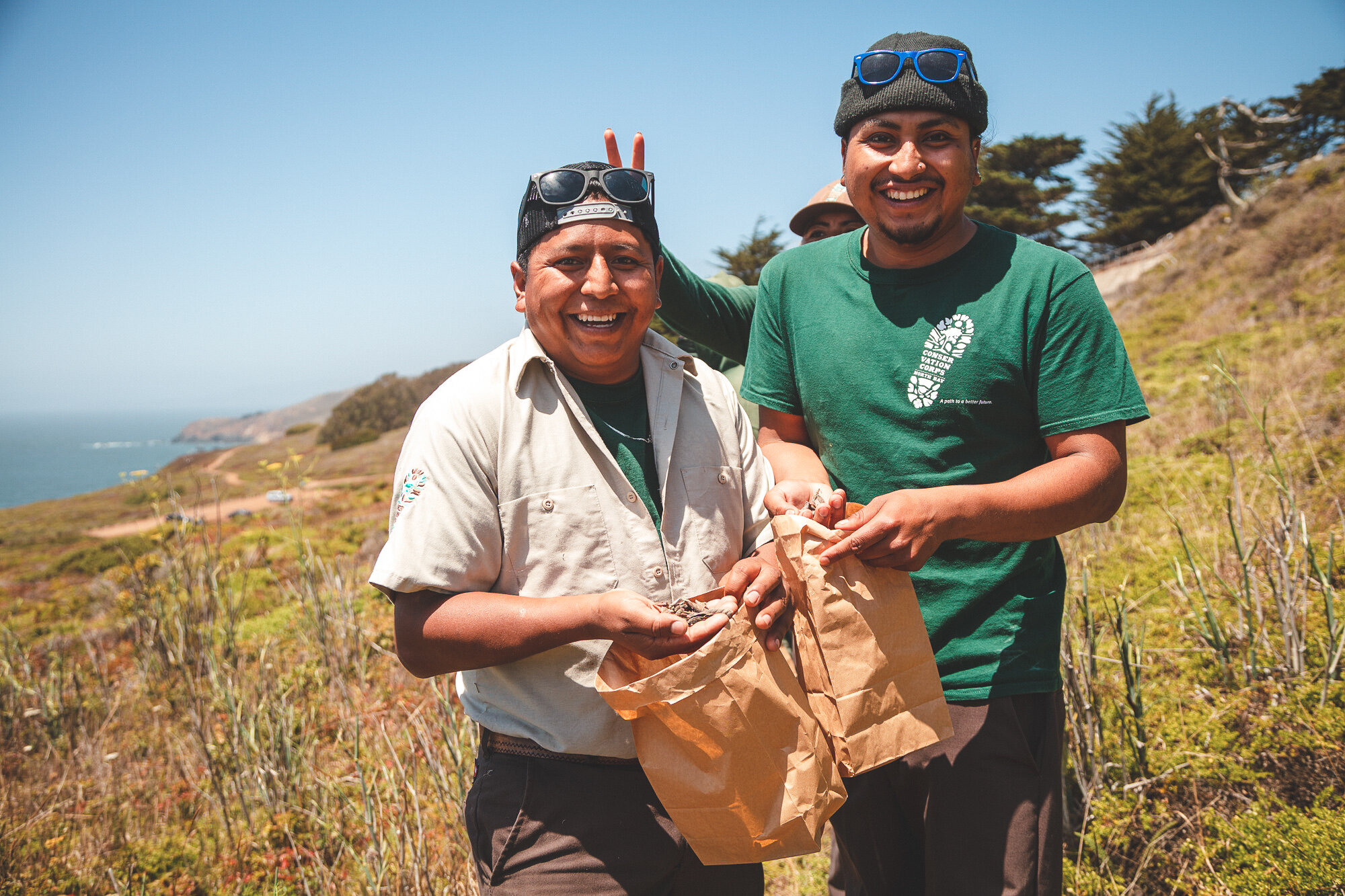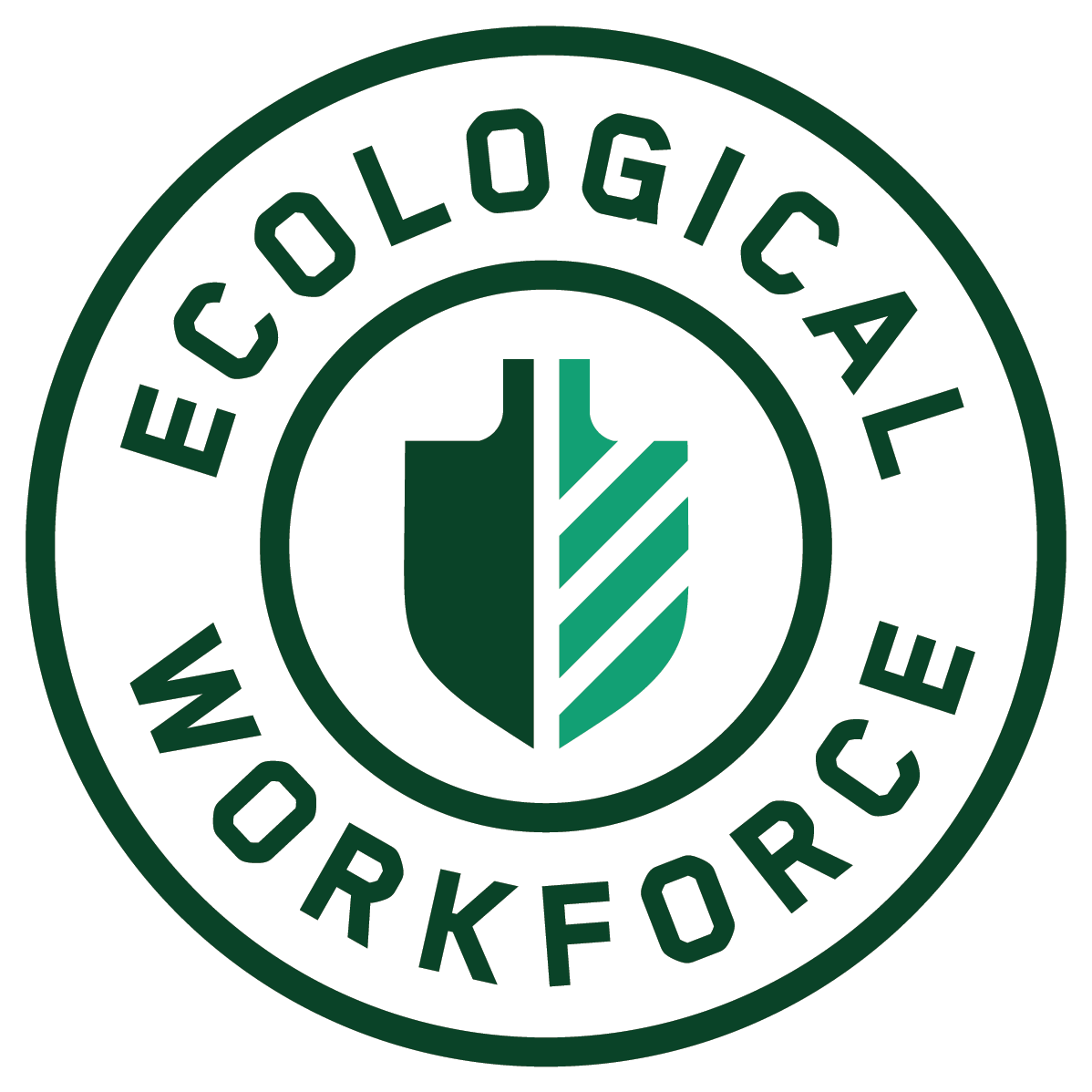
About Our Training
The ecological workforce is comprised of the on-the-ground trade workers who implement ecological restoration projects, often directly interfacing with sensitive and protected resources.
THE PROGRAM
Our Ecological Workforce Awareness and Compliance (EWAC) training program teaches the skills and understanding required to work effectively in sensitive habitats like wetlands, rivers, lagoons, grasslands, forests, and meadows.
Developed by experts in ecological restoration planning and construction, our curriculum covers basic ecological concepts, environmental laws, federal and state resource agencies, protected resources, and the workers' role in resource protection during construction. It focuses on building bridges between workers and resource agencies, recognizing them as critical partners with shared goals.
CURRICULUM
The EWAC course consists of 10 hours of classroom training, which can be supplemented by field-based components and onsite mentoring. Our training can be conducted in Spanish or English with our skilled bilingual/bicultural instructors.
We recognize that all restoration sites, and all land in the United States, are unceded territories of the original peoples. We aim not only to teach about cultural resource laws but also to honor the millennia of indigenous stewardship and ancestral ties to the land. To this end, we are actively collaborating with tribal representatives to integrate indigenous perspectives throughout our curriculum.

Our Model
Our training is designed to be an enhancement to existing workforce development programs. By working with organizations who work closely with frontline communities, we are creating stronger pathways to living-wage jobs that accelerate the pace and scale of restoration to foster greater climate resilience and economic vitality of communities at the same time. We provide our training in Spanish or English with our skilled bilingual/bicultural instructors.
Training Outcomes
An understanding of what ecological restoration is and why there is a need to protect and restore our natural resources.
Familiarity and comfort with the various state, federal, and local governmental agencies involved in environmental protection and how they interact and overlap.
A strong grasp of the worker’s role in helping implement key laws and regulations.
Appreciation of the need to work within permitting constraints in order to protect water quality, air quality, sensitive species and their habitats, and cultural resources during project construction.
Training Benefits
JOB COMPETITIVENESS: EWI’s training and jobsite mentoring makes graduates highly desirable candidates for jobs that have low barriers to entry, and do not require post-high school education or high-level English language proficiency.
ECONOMIC OPPORTUNITY: Equips large segments of our communities with access to the prevailing-wage, family-sustaining jobs being created by the historic investments in climate resilience and natural infrastructure.
INFORMED DECISION MAKING: Our training provides the ecological context for restoration projects and provides the tools to make better environmental protection decisions during construction.
IMPROVED PROJECT OUTCOMES: Enable better project outcomes by teaching workers how to work effectively in sensitive habitats, in proximity to species and cultural resources of concern, and within permitting constraints.
RESPECT AND RECOGNITION: Our training builds shared recognition that on-the-ground workers are an integral part of restoration efforts and have a critical role to play in project success.




